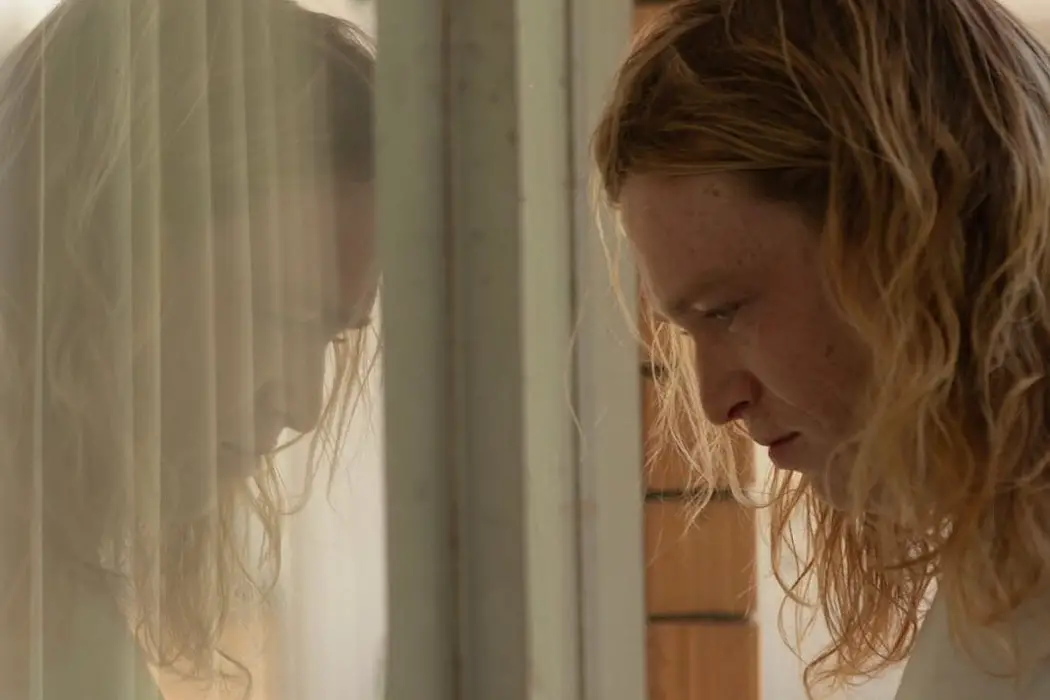CinefestOz 2021 Report: NITRAM & HERE OUT WEST

Alex is a 28 year-old West Australian who has a…
After the unfortunate premature cancellations of both Melbourne and Sydney’s return to film festivals this year, being able to physically attend the CinefestOz Film Festival, which lit up the small beach town of Busselton, Western Australia in late August, was a warm and welcome return that wasn’t taken for granted at any moment.
With four films in competition – amidst a plethora of debuting features, shorts, and documentaries that unspooled over four days – culminating in Justin Kurzel’s Nitram walking away with the titanic $100,000 film prize (awarded at a ceremony visited by the likes of Sacha Baron Cohen, Isla Fisher, Rove McManus and Miranda Otto), this year’s CinefestOz was an important reminder of the imperative nature of keeping the Australian film industry alive, and how each new year introduces a wealth of new and compelling voices into our rich cinematic history.
Nitram (Justin Kurzel)

When initially announced as performing in competition at this year’s Cannes Film Festival, Justin Kurzel’s fifth feature Nitram – and third to riff on an Australian murderer – there was an immediate ambivalence as to how Shaun Grant’s script would frame the events of the 1996 Port Arthur massacre in Tasmania, one of the darkest chapters in Australian history that left 35 people dead and some 18 wounded. Those expecting a sympathetic portrait of a disturbed individual drawn to murder – some insultingly glib comparisons to Taxi Driver and Joker have already arisen online – will be left disappointed, as regular collaborators Kurzel and Grant wield the biographical aspects of Martin Bryant’s early domesticity into an abstract stasis of unknowable human behaviour.
Despite how close it sticks to fact, which vibrates with an undeniable sense of fatalism, Bryant’s life, who is only named and credited as Nitram (powerfully rendered by Caleb Landry-Jones) acts as a conduit to examine Australia’s evolving gun culture (and how necessary the gun reform that followed these events was) , especially in its implicit comparisons to America’s on-going cycle of public shootings and lack of federal reaction. Nitram’s child-like fascination with fireworks and alienation from social interactions are tempered with confrontational observations of Australia’s casual nature towards selling and handling weapons (one of the film’s most striking moments involves a gun shop’s inventory littering the walls like multi-coloured paperback spines in a sprawling library).
Kurzel’s elliptical approach – closer to early Gus Van Sant and Michael Haneke than the more vicious traits of the two recent cinematic adaptations of the 2011 Norway attacks – is riddled with a dilapidated texture, a haunting quality that stretches from the patchy mansion of Essie Davis’ Helen, to the bruised dreams of Nitram’s meek father (Anthony LaPaglia). As the film spirals around the different factors that might’ve influenced or determined Nitram’s actions, Grant’s sparse script avoids any termitic burrowing or definitive claims towards a ‘reason’ for his eventual actions, which gives the audience an emotional withholding edged with moral terror. Arriving full circle after debuting with Snowtown, Nitram is the work of austere stylist, a study in ambiguities rather than an immoral memoir of a murderer that some feared it to be.
Here Out West (Leah Purcell, Fadia Abboud, Julie Kalceff, Lucy Gaffy & Ana Kokkinos)

Coming off two consecutive attempts to illustrate Australia’s growing multicultural population, Measure For Measure and Australia Day (both CinefestOz titles), Here Out West pieces together eight different anecdotal tales from the suburbs of Western Sydney to form an urban symphony that sparkles with regional specificity and emotional integrity. Beginning in the Western Sydney Central Hospital are eight chapters handled across five female directors, Leah Purcell, Fadia Abboud, Julie Kalceff, Lucy Gaffy & Ana Kokkinos and one cinematographer Tania Lambert, which helps smooth the tonal bumps that compilations like this usually run into, but this streamlined approach flattens the segments together into a universality that thematically rings true but unfortunately interprets the intended cinematic experience into feeling like a web-series binge watch.
While the direction remains largely anonymous, the individualistic writing delivered in each passage, from writers Matias Bolla, Tien Tran, Vonne Patiag, Arka Das, Bina Bhattacharya, Claire Cao, Dee Dogan, and Nisrine Amine form a cumulative power that addresses personal expressions of cultural awakenings and the ancestral demands that are placed upon us by our families. The first segment kicks off the remaining stories like a series of descending dominoes, as Nancy (Geneviève Lemon) races to the hospital to visit her incriminated daughter who has just given birth. Her decision to kidnap her newborn granddaughter, rather than leave her to the state, unknowingly starts a chain of events that include confrontations of racism at work, uncovering interracial relationships, and the importance of keeping cultural traditions alive.
Despite this wraparound story (which is the film’s weakest aspect), each unfolding narrative refreshingly rarely interacts with the next, avoiding the annoying coincidental gimmicks that are usually embroiled into these multi-stranded anthology pieces. Aiming to complicate our notions of identity and refusing to have a single ‘white saviour’ character, this ethnographic portrait finds its most salient moments within its small interpersonal interactions, whether its the amusing bickering between two Vietnamese brothers Andy (Brandon Nguyen) and Tuan (Khoi Trinh) over the purchase of a robot vacuum, or the hilarious love triangle that blows up between Robi (Arka Das), Rashid (Rahel Romahn) and Dino (Thuso Lekwape).
These ethnic anxieties and unwavering moments of fidelity challenge perceived prejudices in a satisfyingly unpretentious manner (despite its brief fringes with melodrama) that never undercuts its sincerity or structural spirit for the sake of its sociopolitical importance.
Nitram will be theatrically released in Australia on 30th September.
Does content like this matter to you?
Become a Member and support film journalism. Unlock access to all of Film Inquiry`s great articles. Join a community of like-minded readers who are passionate about cinema - get access to our private members Network, give back to independent filmmakers, and more.













